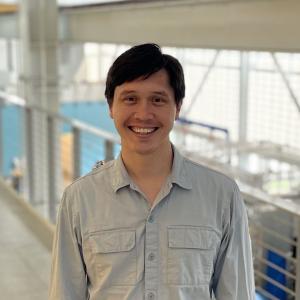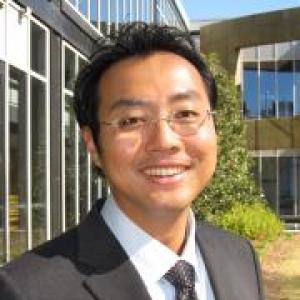David S. Citrin

David Citrin
Professor
Professor Citrin earned a B.A. from Williams College (1985) and a M.S. (1987) and a Ph.D. (1991) from the University of Illinois, all in physics, where his dissertation was on the optical properties of semiconductor quantum wires. Subsequently, he was a post-doctoral research fellow at the Max Planck Institute for Solid State Research, Stuttgart, Germany (1992-1993) and Center Fellow at the Center for Ultrafast Optical Science at the University of Michigan (1993-1995). Dr. Citrin was an assistant professor of physics and materials science at Washington State University (1995 to 2001).
Professor Citrin joined the faculty at Georgia Tech in 2001 where his work focuses on terahertz technology and nanotechnology. He is a recipient of a Presidential Early Career Award for Scientists and Engineers and of a Friedrich Bessel Award from the Alexander Von Humboldt Stiftung. In addition, he is Project Coordinator on Nonlinear Optics and Dynamics at Georgia Tech-CNRS UMI 2958 located at Georgia Tech-Lorraine. Professor Citrin’s research in terahertz imaging is featured in the Georgia Tech press release, ”Imaging Technique Unlocks the Secrets of 17th Century Artists"; a list of some media placements from the press release may be found at http://photonics.georgiatech-metz.fr/node/33.
Research interests:
- Terahertz nondestructive testing of materials
- Terahertz characterization of art and cultural heritage
- Chaos and nonlinear dynamics in external-cavity semiconductor lasers
- Nanophotonics
- High-speed electronic, photonic, and optoelectronic devices
- Nonlinear optical properties of semiconductor materials and devices
404.894.2000
Office Location:
MIRC 211
- Artificial Intelligence (AI)
- Computational Materials Science
- Computer Engineering
- Electronic Materials
- Electronics
- Hydrogen Production
- Materials and Nanotechnology
- Optics & Photonics
- Semiconductors
IRI Connections:









